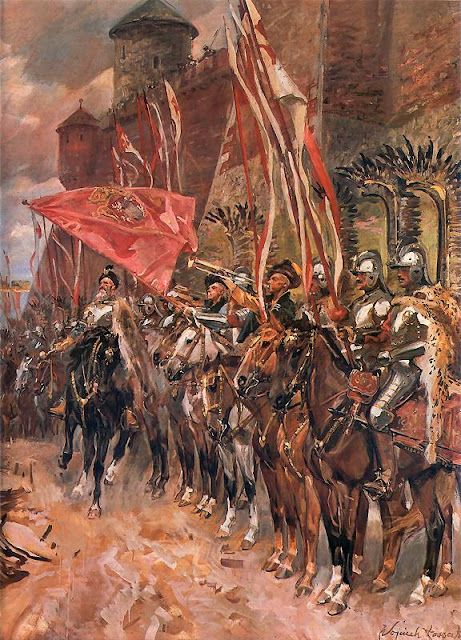"Well, that's just the way it is!"
How many times have we heard this line, or something similar, from our opposite in an argument, in an attempt to end the conversation?
How many times have we ourselves used it to do the same?
Such a statement is called a truism, or "a self evident, obvious truth," according to Random House Webster's College Dictionary.
Recently, I have begun to notice - at first rather leisurely, then purposefully - the casual appearance of this statement in a variety of forms in everyday speech. The occasion which drew my mind away from this leisurely acceptance to actively listening for its employment and challenging its use was a discussion with a colleague over the mores of different civilizations, and whether the Natural Law can be used as the overall judge of the objective morality of such mores.
As a test, I asked her to condemn the Third Reich's treatment of the Jews, which she tried to avoid by criticizing the German Government's economic inefficiency in devoting ten percent of its military resources to the extermination of a part of its population, whose loyalty it could have attempted to cultivate. Asking her point blank, she said, "Of course it was wrong." By we never got around to determining why...
Any discussion about morality will inevitably narrow down to a debate over the ultimate measuring stick: a person's subjective judgment or an objective standard, not subject to man's whims or judgments.
This discussion revolved more around the other widely-used phrase, "That's just your opinion!" However, our other one made its appearance under a variety of styles.
Every time I have come across this phrase, it has unsettled me as being used out of place, or simply as unsatisfactory. By simply repeating the status quo of a situation about which one is arguing does not pronounce an effective argument for the justness or unjustness of that situation. For example, I once heard someone say, in response to my criticisms of the Aztec practice of human sacrifice, "Well, that was their religion." And therefore, ... Such an statement is an unfinished response.
In the end, that person could not bring himself to condemn such a hideous rite because of the culture of tolerance we now endure, though he clearly wished to do so.
To be certain, Socrates [per vocem Platonis] would not have allowed any of his interlocutors to end an argument in such a manner!
I am convinced that the employment of the truism in this fashion in arguments today is a last-ditch attempt on the part of one party to avoid an objective judgment of the issue under consideration.
Let's be vigilant for the employment of this and similar phrases, and - with caritas - call out our opposites to explain its use!
NB - Linked with the truism is the epitaph on the grave of a French nobleman, Jacques II de Chabannes, Sieur de la Palisse (1470-1525). A famous soldier, he took part in the numerous Italian Wars which commenced with Charles VIII's invasion of that country in 1494. Rising to the post of Grand Maître de France (Grand Master of France, the head of the "Maison du Roi", the royal household), held from 1511 to 1515 under Louis XII, he was created Maréchal de France by Francois I the year the latter took the throne. While fighting for Francois, he was captured by German landsknechts at the Battle of Pavia (February 25, 1525) and executed shortly thereafter.
His link with the truism stems from a misreading of his epitaph. It properly reads:
"Si il' n'était pas mort, il ferait encore envie." [If he wasn't dead, he would still be envied.]
However, it was misread as:
"Si il' n'était pas mort, il serait encore en vie." [If he wasn't dead, he would still be alive.]
From this misreading, the French today use for word truism lapalissade, based upon the marshal's birthplace!
Inscription à :
Publier les commentaires (Atom)

Aucun commentaire:
Enregistrer un commentaire